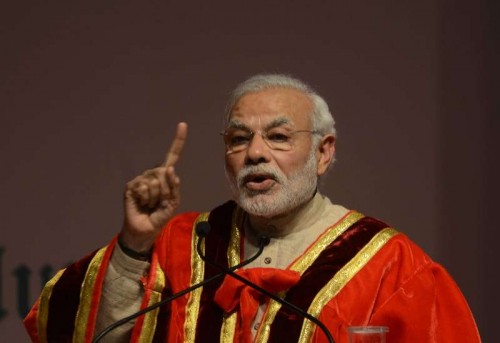
Prime Minister Narendra Modi said science has helped shape modern India and lauded scientists for their pioneering work that placed the nation in the forefront globally.
“Science has helped shape modern India… It was the pioneering projects undertaken by our scientists that built outstanding institutions with modest resources… that helped place India at the forefront of the world in many areas,” Modi said in his inaugural address at the 102nd session of the Indian Science Congress.
He said a nation’s progress and its human development is linked to science and technology but it can also increase inequality and damage the environment.
“A nation’s progress and its human development are linked to science and technology. It can remove national barriers, unify the world and advance peace, as it can bring nations, rich and poor in a shared effort to global challenges.”
However, Modi was quick to caution that “it (science) can increase inequality, make wars more lethal and damage our environment”.
As the country’s investments in science and technology are far too concentrated in the central government agencies, the prime minister called out to make scientific investments more broad-based.
He congratulated the Indian Space Research Organisation (ISRO) for placing the Mangalyaan in the Mars orbit on its first attempt, and said: “Whenever the world shut its door on us, our scientists responded with the zeal of a national mission.
“And when the world sought our collaboration, our scientists reached out with the openness that is inherent in our society.”
Linking science with human development, he said the two cannot be divorced from “political decisions, social choices, the question of equity, ethics, and access. Human development has been the larger purpose and the driving force of Indian scientific pursuits”.
Modi said the poorest should also have access to science and technology.
“To me, the arms of science, technology and innovation must reach the poorest, the remotest and the most vulnerable person,” he said.
The five-day conference at the University of Mumbai will see deliberations and presentation of papers by scientists and Nobel laureates from across the globe.
As the Science Congress returns to Mumbai after 45 years, the emphasis will be on showcasing the city as a science hub as well as being the financial capital of India.